Related Research Articles

Manfred Mann were an English rock band, formed in London and active between 1962 and 1969. They were named after their keyboardist Manfred Mann, who later led the successful 1970s group Manfred Mann's Earth Band. The group had two lead vocalists: Paul Jones from 1962 to 1966 and Mike d'Abo from 1966 to 1969. Other members of various group line-ups were Mike Hugg, Mike Vickers, Dave Richmond, Tom McGuinness, Jack Bruce and Klaus Voormann.

Soft Machine are an English rock and jazz band from Canterbury formed in 1966 by Mike Ratledge, Robert Wyatt, Kevin Ayers, Daevid Allen and Larry Nowlin. As a central band of the Canterbury scene, the group became one of the first British psychedelic acts and later moved into progressive and jazz rock, becoming a purely instrumental band in 1971. The band has undergone many line-up changes, with musicians such as Andy Summers, Hugh Hopper, Elton Dean, John Marshall, Karl Jenkins, Roy Babbington and Allan Holdsworth being members during the band's history. The current line-up consists of John Etheridge, Theo Travis, Fred Thelonious Baker and Asaf Sirkis.
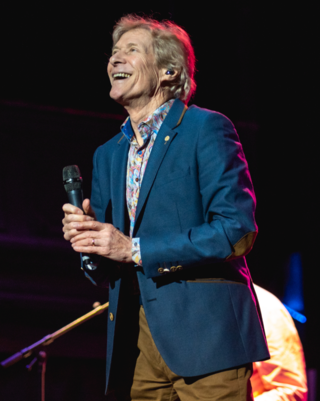
Paul Jones is an English singer, actor, harmonicist, radio personality and television presenter. He first came to prominence as the original lead singer and harmonicist of the rock band Manfred Mann (1962–66) with whom he had several hit records including "Do Wah Diddy Diddy" and "Pretty Flamingo".

Manfred Mann's Earth Band are an English rock band formed by South African musician Manfred Mann. Their hits include covers of Bruce Springsteen's "For You", "Blinded by the Light" and "Spirit in the Night". After forming in 1971 and with a short hiatus in the late 1980s/early 1990s, the Earth Band continues to perform and tour, as of 2024.
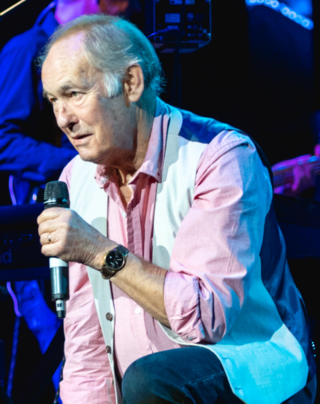
Michael David d'Abo is an English singer and songwriter, best known as the lead vocalist of Manfred Mann from 1966 to their dissolution in 1969, and as the composer of the songs "Handbags and Gladrags" and "Build Me Up Buttercup", the latter of which was a hit for The Foundations. With Manfred Mann, d'Abo achieved six top twenty hits on the UK Singles Chart including "Semi-Detached, Suburban Mr. James", "Ha! Ha! Said the Clown" and the chart topper "Mighty Quinn". He is the father to actress Olivia d'Abo.

Third is a live and studio album by the English rock band Soft Machine, released as their third overall in June 1970 by CBS Records. It is a double album with a single composition on each of the four sides, and was the first of two albums recorded with a four-piece line-up of keyboardist Mike Ratledge, drummer and vocalist Robert Wyatt, saxophonist Elton Dean, and bass guitarist Hugh Hopper. Third marks a shift in the group's sound from their psychedelic origins towards jazz rock and electronic music.

Christopher Gordon Blandford Wood was a British rock musician, best known as a founding member of the rock band Traffic, along with Steve Winwood, Jim Capaldi and Dave Mason.

"Quinn the Eskimo (The Mighty Quinn)" is a folk-rock song written and first recorded by Bob Dylan in 1967 during the Basement Tapes sessions. The song's first release was in January 1968 as "Mighty Quinn" in a version by the British band Manfred Mann, which became a great success. It has been recorded by a number of performers, often under the "Mighty Quinn" title.
Michael Graham Vickers is an English musician who came to prominence as the guitarist, flautist, and saxophonist with the 1960s band Manfred Mann.
Hughie Flint is an English retired drummer, known for his stint in John Mayall & the Bluesbreakers during the early 1960s, mainly for his contribution towards their album Blues Breakers with Eric Clapton (1966).
Stephen Gregory is an English jazz saxophonist and composer. He plays tenor, alto, soprano and baritone saxophone as well as the flute.
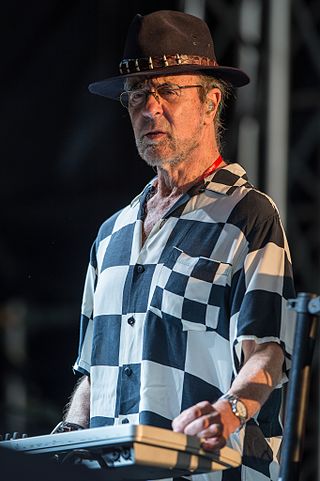
Manfred Sepse Lubowitz, known professionally as Manfred Mann, is a South African-born musician, residing in the UK since 1961. He is best known as a founding member of the bands Manfred Mann, Manfred Mann Chapter Three and Manfred Mann's Earth Band.
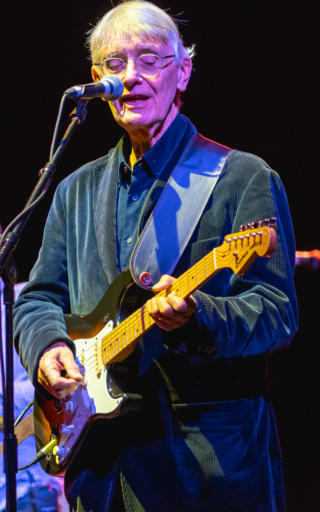
Thomas John Patrick McGuinness is a guitarist, singer and songwriter who played bass and guitar with rock band Manfred Mann, among others, before becoming a record and television producer.

"Moondance" is a song recorded by Northern Irish singer and songwriter Van Morrison and is the title song on his third studio album Moondance (1970). It was written by Morrison, and produced by Morrison and Lewis Merenstein.

Georgie Fame and the Blue Flames were a British rhythm and blues group during the 1960s whose repertoire spanned R&B, pop, rock and jazz.
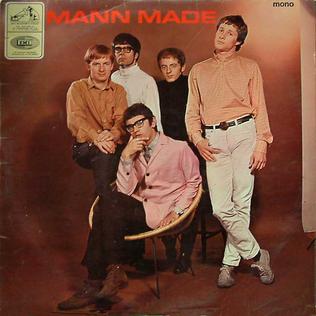
Mann Made is the second British and fourth American studio album by Manfred Mann, released in October 1965 on His Master's Voice in the United Kingdom, and November 1965 on Ascot Records in the United States. It was the group's final recording project with original members Mike Vickers and Paul Jones, as well as their last to be recorded at Abbey Road Studios, London, England, before switching to Fontana Records.

Instrumental Asylum is an EP by Manfred Mann, released in 1966. The EP is a 7-inch vinyl record and released in mono with the catalogue number His Master's Voice-EMI 7EG 8949.

Soul of Mann is a 1967 compilation album of mostly instrumental recordings by Manfred Mann, released by HMV Records shortly after the company dropped the group from its roster. It was not well publicised and did not sell strongly.
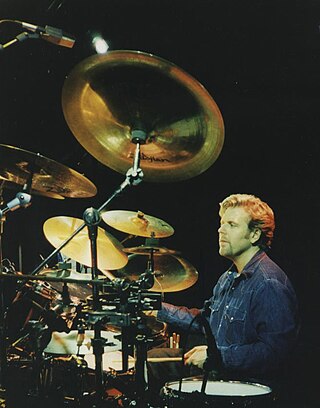
John Trotter is an English and Australian drummer.
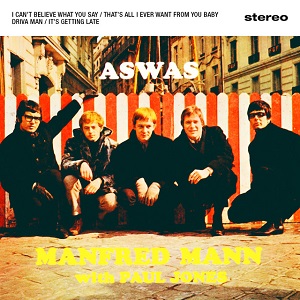
As Was is an EP by Manfred Mann, released in 1966. The EP is a 7-inch vinyl record and released in mono with the catalogue number His Master's Voice-EMI 7EG 8962.
References
- 1 2 "Lyn Dobson". Mikecollins.plus.com. Archived from the original on 4 March 2016. Retrieved 2 December 2011.
- ↑ "The Canterbury Discography". Lyn Dobson – Jam Sandwich. calyx-canterbury.fr. Retrieved 2 September 2019.
- ↑ AllMusic biography